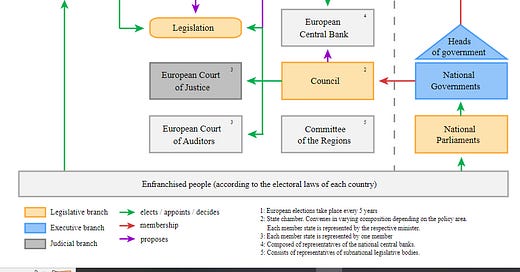What democracy?
We're still cutting the Lilliputian threads, but if we can prevent Remainer sabotage we shall be able to say that we're fully out of the EU.
But then, so is North Korea.
Rather than define our destiny negatively as against the puppet-empire in Europe, what positive vision should we have of Britain and our future?
We talk of ourselves as a democracy, which of course we aren't, at least not after the ancient Athenian model. We are, as David Starkey points out, a royal republic.
It is a far from perfect one, at that. The representatives we elect have no legal duty to reply to our queries, a 2009 court case determined. Even when they do, their responses can be unsatisfactory, as I discovered a decade ago when I urged my MP to press for the restoration of index-linked savings. If only…
Still, disenchanted voters can dismiss their MP in an election. Proxy democracy is an arrangement that we hope will foster rule by wise people who act in our best interests.
Nevertheless they must still persuade us, too. It's worth noting that Edmund Burke told his Bristol electorate in 1774 'Your representative owes you, not his industry only, but his judgment; and he betrays, instead of serving you, if he sacrifices it to your opinion' but lost the next (1780) hustings.
Popular dissatisfaction on a larger scale can lead to the fall of an entire government. The golden key of our quasi-democracy is the provision for a peaceful revolution.
At the time of the 1991 Maastricht debate in Parliament the late and great Tony Benn described what could happen when the people lost the ability to defenestrate their executive: apathy, riot, xenophobic nationalism. For years he rehearsed his Five Questions for the powerful, the most important being 'How do we get rid of you?' The EU's answer is 'You can't.'
Here is a flowchart of the EU's institutions. What happens to a citizen's vote in this system?
There is no direct representation in the State Chamber or the European Council, only delegated Ministers of various national governments. As for the Assembly of elected constituency MEPs:
"The European Parliament may approve or reject a legislative proposal, or propose amendments to it. The Council is not legally obliged to take account of Parliament's opinion but in line with the case-law of the Court of Justice, it must not take a decision without having received it."
This is where the citizens' franchise goes to die.
No wonder that so many MEPs clock in for their daily allowance and clock straight out again, hauling their wheelie luggage back onto the train; ironically, because they have no right to choo-choose.
The Heath Robinson-esque diagram above has two functions. The first is to bind member nations into an 'ever-closer union' tending towards a single State. The natural resistance of ordinary people to the progressive loss of national autonomy and identity has been overcome by - well, read it all in Booker and North's 'The Great Deception.'
The second is to distance power from the potentially subversive ballot box. The deception has been done so well that even MEPs believe they are in a democracy: it was almost pitiable to see a Skandi member stand at the end of one of Farage's extended insults to an unlovely Eurocrat and ask why he could not work from within to improve the operation of the system. The fellow could not see that it works near-perfectly as is; he merely did not understand its function.
I sometimes wonder whether Remainers/Rejoiners really understand this. The alleged demerits of Brexit are mostly couched in financial terms and often with reference to that absurd measure GDP; and in any case many of our transitional difficulties have been deliberately created by our resentful, jilted ex-partners.
Brexit is not about money, or only partly so: without peeling an onion for childhood poverty, I remember growing up with linoed floors, no central heating, no fridge (ever seen a meat safe?) and an outside toilet and we managed just fine. I'm glad we are more prosperous now (for now), but we should keep in mind what constitutes our real riches:
We belled that cat. Three times: in 1215, 1688 and 2016.
And the work is not yet done.




